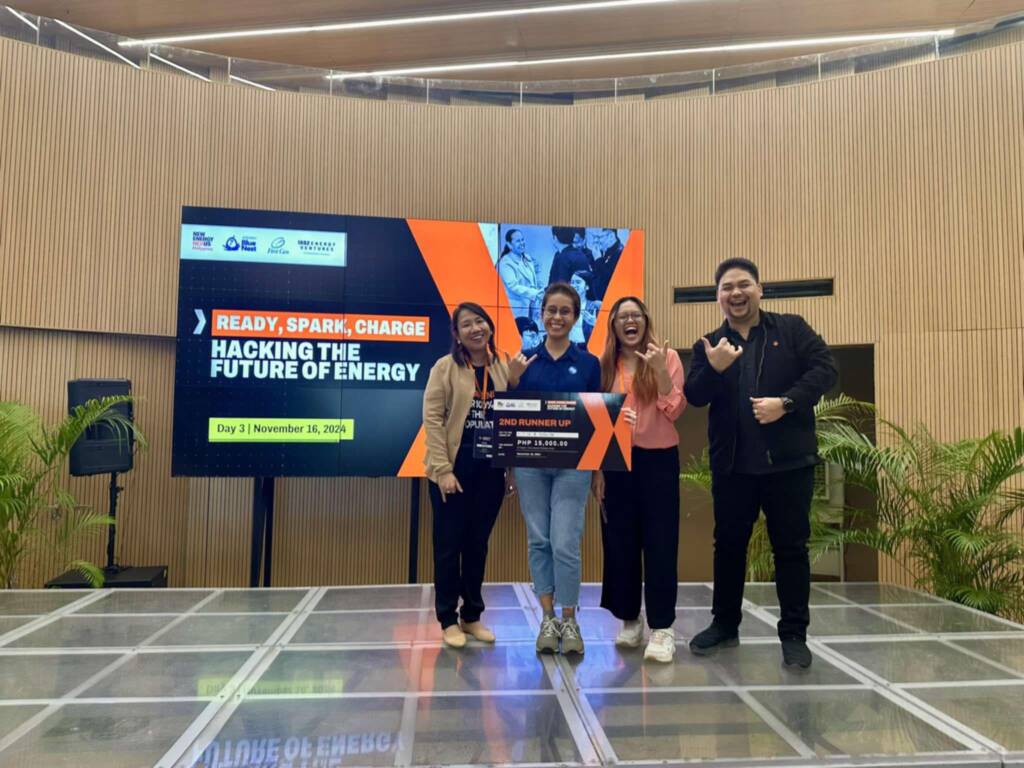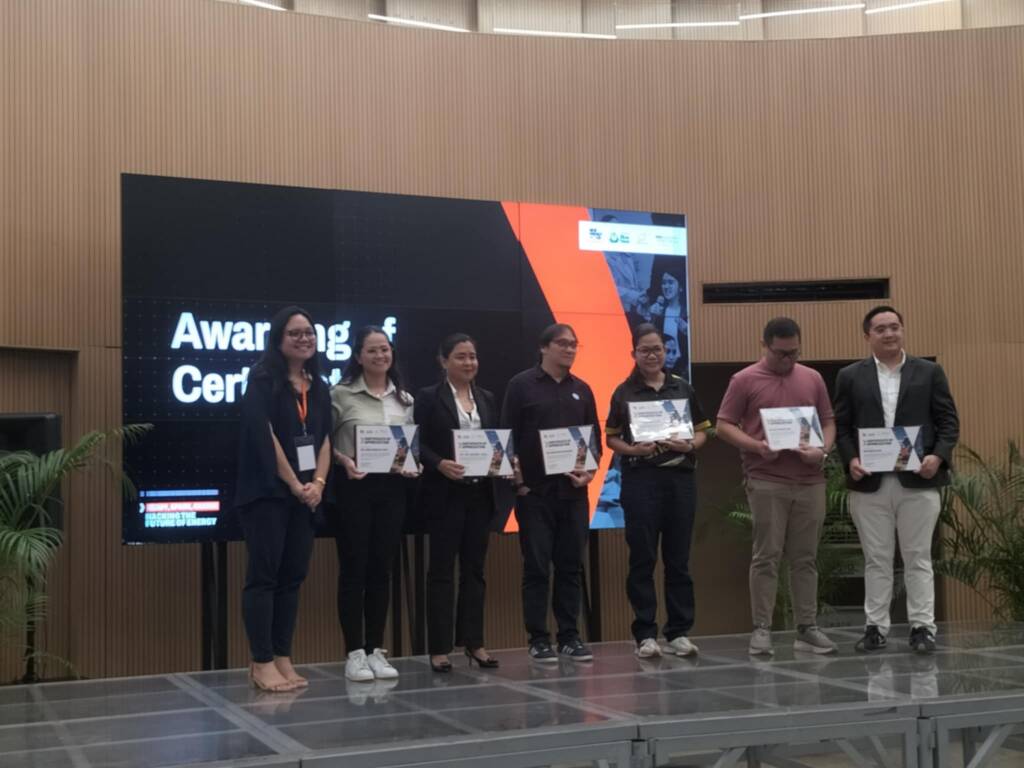Jheny Dabu
Last November 14 to 16, I attended New Energy Nexus Philippines’ (NexPH) Ready, Spark, Charge 2024: Hacking The Future of Energy–a 3-day competition focused on energy efficiency, sustainable transportation, and renewable energy participated by college students, professionals, and startup innovators. My motivation was clear: to explore how different sectors approach climate narratives, build connections, and spark new ideas for advancing decarbonization.
The event was a whirlwind of mentorship sessions, hands-on workshops, and collaborative problem-solving. We dove deep into understanding root causes, crafting compelling problem statements, and creating innovative solutions. Participants formed teams to pitch ideas, and while I initially felt out of place, I soon found myself part of a dynamic group called *WattsUp*. Together, we refined our proposal—centered on tourism and renewable energy promotion—and earned second place! This unexpected achievement was a testament to the power of collaboration and adaptability.

One of the event’s most valuable aspects was the opportunity to meet a diverse group of participants: NGO workers, engineers, IT experts, academics, entrepreneurs, and students. These interactions offered fresh perspectives and reinforced the importance of bridging expertise across sectors. As an experienced Tourism worker, I thought of promoting tourist accommodations and destinations that have adopted renewable energy through our proposed e-commerce app “WattsUp.” This app serves as both a tourism solution and a platform to forward decarbonization advocacy.
While some participants focused on branding and profit-driven solutions, I used these conversations to introduce 350 Pilipinas’ advocacy for a fossil-free economy and renewable energy. It became clear that even business-oriented innovations could align with climate justice goals.
Personally, the experience pushed me to step outside my comfort zone. Attending without my usual colleagues, I had to represent 350 Pilipinas on my own—articulating our campaigns and building new networks. Skills like crafting problem statements and delivering pitches proved invaluable, as did witnessing how others navigated impromptu questions with confidence.

The broader takeaway? Innovations like those discussed at RSC 2024 can complement climate campaigns by engaging new audiences and amplifying our message. Moving forward, I plan to apply the “problem canvas” approach to address challenges within our campaigns and continue learning from diverse groups committed to solving the climate crisis.
Attending RSC 2024 met all my expectations—and more. It strengthened my belief that fostering connections between the climate movement and other sectors can create powerful synergies. Given the chance, I’d gladly join similar events again to deepen these collaborations and drive meaningful change.##
